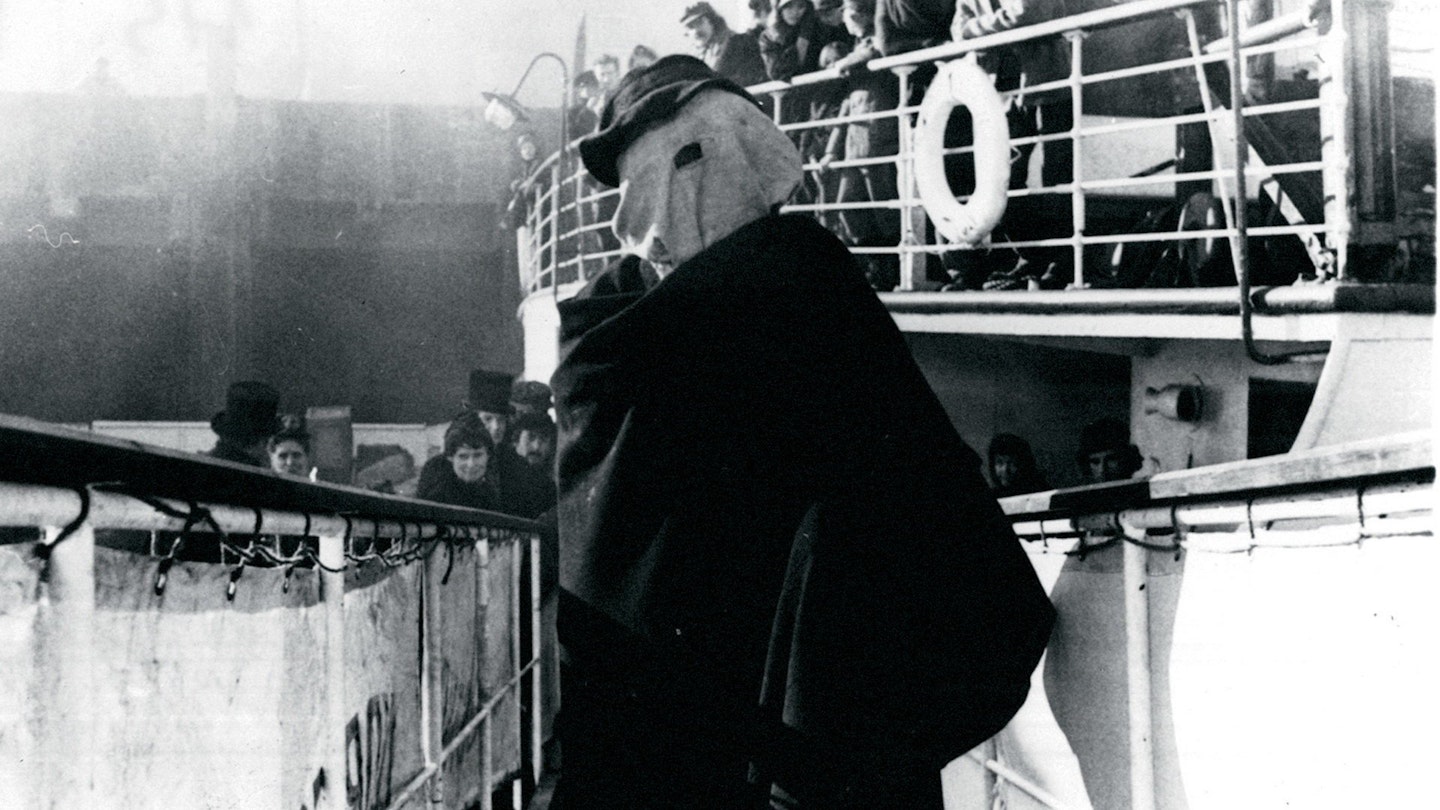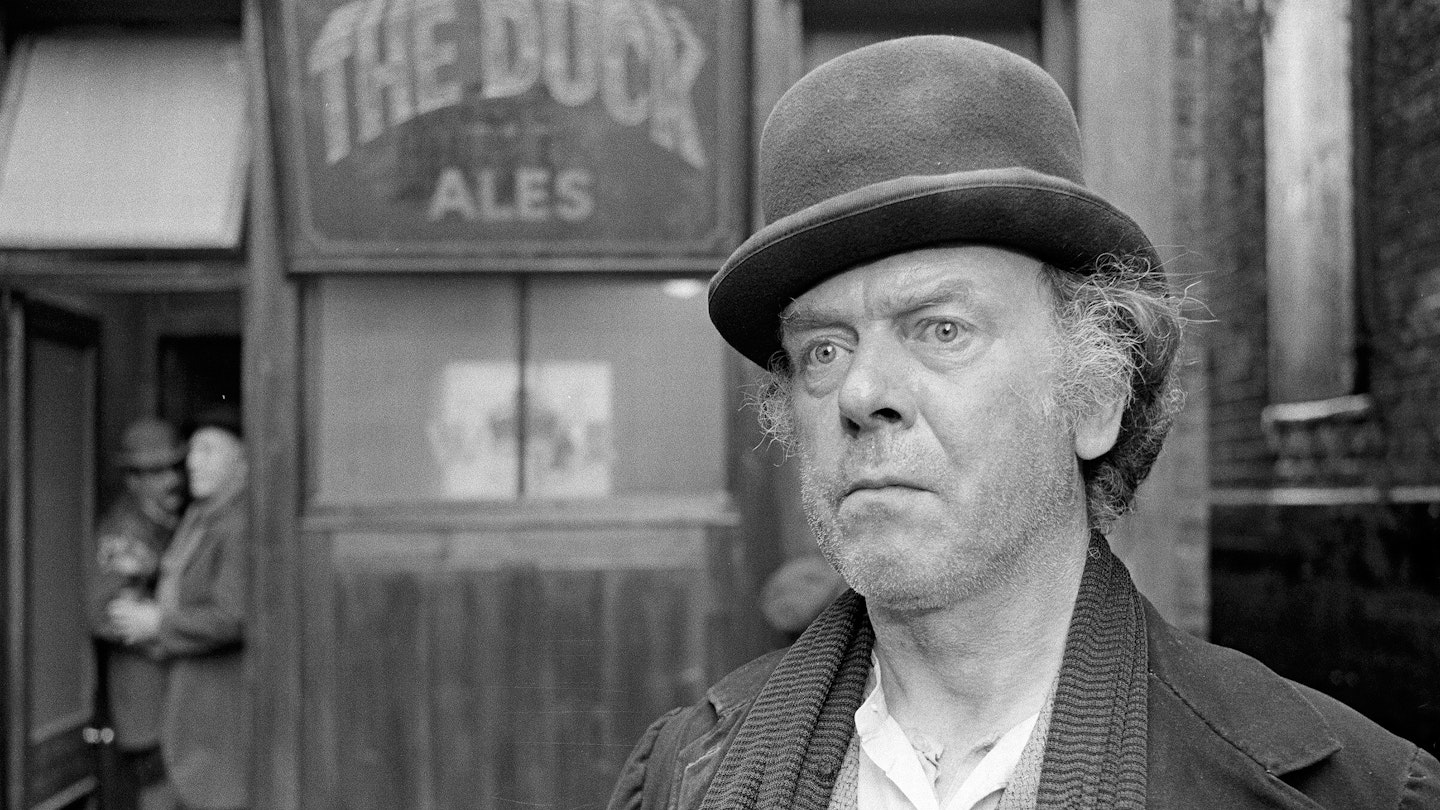In one of the most unlikely strokes of inspiration, Mel Brooks, wearing his producer’s hat saw David Lynch’s semi-underground first feature, Erasurehead (1976), and decided Lynch was the director to handle a serious project Brooks held dear, a biopic of John Merrick, the Victorian freak, and of Frederick Treves, the philanthropic doctor who became his patron and friend.
The central performances are astonishingly subtle. John Hurt allows humanity to shine through impressive make-up as the multiply-deformed Merrick, who retains a childlike gentleness no matter how sorely he has been abused. Anthony Hopkins does wonders with self-doubt and underplaying in an apparently secondary, but actually more complex, role. The careful, literate script wavers between the melodramatic and the sentimental, just as Merrick passes through the slums and sideshows to become something of a pet for high society (another form of freakshow?).
However, Lynch imports all the cinematic strangeness of Eraserhead, creating a Victorian Britain of hideous industrial accidents and steam-belching machines in Expressionist black and white, and turning a trip to the theatre – a highlight in Merrick’s life – into a magical celebration of the fantastical that evokes the memories of the early trick films of George Méliés, It’s a very rich film, confident enough in its emotional core to get away with broadstrokes like the villainous performances of Freddie Jones and Michael Elphick as rotten exploiters, and a visit from Anne Bancroft as a princess.




